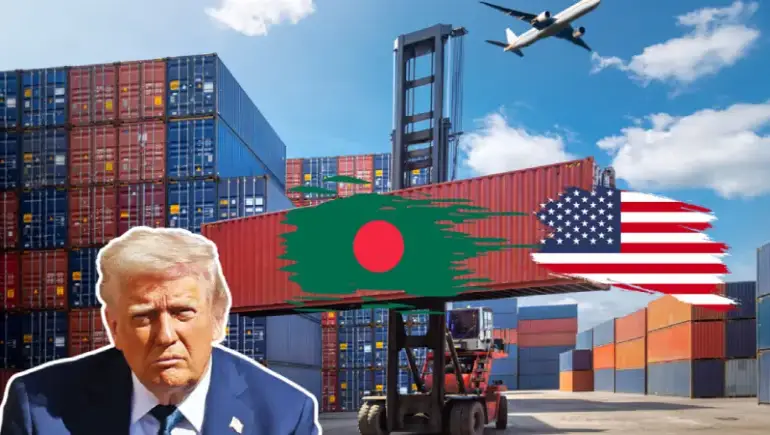
In a strategic effort to reduce the growing trade imbalance with the United States, Bangladesh is shifting its economic approach by planning significant imports from America, notably in the aviation and agriculture sectors. Dhaka’s recent interest in acquiring Boeing aircraft and sourcing wheat imports from the US reflects a bold move to address the persistent US trade gap and diversify its global supply chains.
For years, Bangladesh has maintained a significant trade surplus with the United States, primarily due to its robust ready-made garments (RMG) exports, which account for the bulk of Bangladeshi goods entering the American market. However, US exports to Bangladesh have remained relatively low, leading to a trade deficit on the American side.
To correct this imbalance and strengthen bilateral trade ties, Bangladesh is reportedly engaging in talks to purchase Boeing planes to support the fleet expansion of its national carrier, Biman Bangladesh Airlines. The deal could involve next-generation aircraft, enhancing the country’s aviation infrastructure while providing a major boost to US exports.
Simultaneously, Bangladesh is turning to the United States for wheat imports, especially in the wake of global supply chain disruptions triggered by geopolitical tensions and climate-related issues in traditional sourcing regions. By importing high-quality US wheat, Dhaka aims to stabilize domestic food prices and ensure food security while contributing to a more balanced trade ledger with Washington.
This initiative not only provides a steady supply of essential commodities but also opens the door for further collaboration in agricultural technologies, food processing, and storage solutions between the two nations.
The potential import of Boeing aircraft and US wheat represents more than just a trade maneuver; it's a diplomatic and economic signal. By increasing imports from the US, Bangladesh is showing its commitment to fair trade practices and reinforcing its geopolitical alignment with Western economies. In turn, the US can view this as an opportunity to deepen its engagement in South Asia, particularly with one of the region’s fastest-growing economies.
Bangladesh’s move to help reduce the US trade deficit through targeted, high-value imports demonstrates strategic economic foresight. If executed effectively, these initiatives could set a precedent for future trade diversification and deeper bilateral partnerships.
As Dhaka continues to grow its economy and look westward for technological and agricultural collaborations, its engagement with the US could evolve into a model for balanced and mutually beneficial trade.












Comments
There are no comments for this Article.